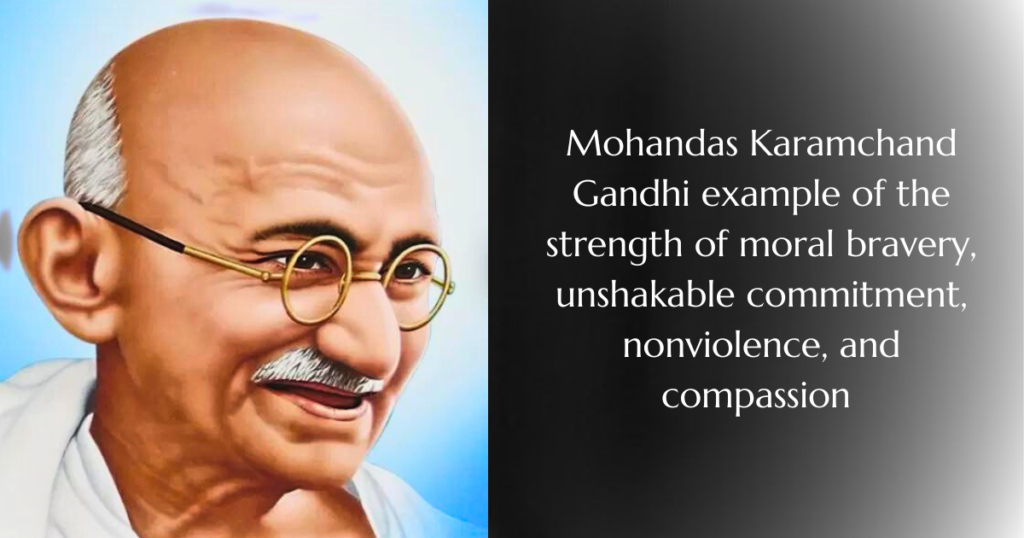Mahatma Gandhi Ji Essay in English
Mahatma Gandhi Ji Life, Legacy, Impact, Biography, Books, Assassination and more.
Mohandas Karamchand Gandhi, often known as Mahatma Gandhi Ji, was born in Porbandar, Gujarat, India, on October 2, 1869. He played a significant role in the country’s fight for independence from British domination. His peaceful resistance ethic and his consistent commitment to justice and equality serve as an inspiration to social movements and civil rights movements across the globe.
Early Life and Education of Mahatma Gandhi Ji's
1. Birth and Childhood
Gandhi was raised in a spiritual Hindu family. Putlibai was a devoted Muslim, and her father, Karamchand Gandhi, was Porbandar’s diwan (chief minister).
Truth, honesty, and nonviolence were principles established in him by his family, and these would eventually form his ideology.
2. Education, Influences and Impacts
While pursuing his legal studies in London, Gandhi was introduced to the political philosophies and ideas of the West. His viewpoint on civil rights and social justice was widened by this encounter.
Additionally, he studied the teachings of Jesus Christ and the Bhagavad Gita, among other religious works, which contain ideals of nonviolence.

Gandhi Philosophy
1. Satyagraha and Nonviolent Resistance
Gandhi is credited with creating the Satyagraha movement, which stands for “truth-force” or “soul-force.” It promotes peaceful protest and passive resistance as strategies for bringing about social and political change.
Gandhi exemplified the effectiveness of nonviolent protest in opposing unfair laws and practices via movements like the Salt March and the Quit India Movement.
2. Principles of Ahimsa (Nonviolence)
Gandhi’s ahimsa, or nonviolence, principle was fundamental to his ideology. He felt that moral bravery and the willingness to endure without using violence in defense of a just cause were the ultimate sources of strength.
His approach to social transformation and conflict settlement was based on ahimsa.
Leadership in India's Independence Movement
1. Role in Indian National Congress
Gandhi became a prominent figure in the Indian National Congress (INC), promoting independence, improving rural areas, and giving India’s underprivileged populations more influence.
He organized national efforts in opposition to British policy, calling on Indians to shun British institutions and products.
2. The Civil Disobedience Movement and Salt March
Gandhi’s 1930 Salt March, in which he and hundreds of supporters marched to the Arabian Sea to protest British salt charges, is among his most famous examples of civil disobedience.
The Salt March brought the injustices of colonial rule to the attention of the world and strengthened the Indian independence movement.
Legacy and Impact
1. Global Influence
Gandhi’s nonviolent ideology influenced civil rights movements worldwide, such as Martin Luther King Jr.’s American Civil Rights Movement and Nelson Mandela’s anti-apartheid campaign in South Africa.
His values of social justice, peace, and tolerance are still relevant to leaders and activists addressing today’s issues.
2. Respect and Recognition
The International Day of Non-Violence is observed on October 2, Gandhi’s birthday, to honor his enduring legacy and contributions to humanity.
Gandhi’s life and teachings are honored by an endless number of works of art, memorials, and institutions across the globe, ensuring that his message of love and truth endures for many generations.
The assassination of Mahatma Gandhi Ji
1. Background information about the January 30, 1948, assassination
Mahatma Gandhi Ji attended a prayer meeting at Birla House in New Delhi on the evening of January 30, 1948.
Gandhi died when Nathuram Godse came up to him and fired three bullets at close range.
2. Motives of Nathuram Godse
Deep ideological differences separated Gandhi and Hindu nationalist Nathuram Godse, a former member of the Rashtriya Swayamsevak Sangh (RSS).
Godse disagreed with Gandhi’s views on the unification of Hindus and Muslims as well as his support of nonviolence and tolerance.
3. Reaction and Response
“Hey Ram” (Oh God), Gandhi’s final words, reflected his forgiving heart and spiritual strength toward his killer.
Fast-moving reports of Gandhi’s murder caused shock, sadness, and anger in India and around the globe.
4. Remembrance, Honors and Tributes
With people from every walk of life honoring their beloved leader, Gandhi’s funeral procession in Delhi was one of the biggest ever seen.
His passing triggered an international outpouring of grief and cemented his reputation as a world leader in nonviolence and peace.
Gandhi's Enduring Message
Gandhi’s ideas of fair administration, tolerance, and nonviolence are still applicable to today’s world issues.
His focus on moral leadership and community empowerment provides guidance for promoting justice and peace in the modern world.
Gandhi's Relevance Today
Gandhi’s ideas on nonviolence, unity, and compassion can be applied to foster societal harmony and peacefully resolve issues in a society where division is growing.
His focus on ecological sustainability and responsibility for the environment is in line with international initiatives for responsible governance and ecological sustainability.
Conclusion
The life of Mahatma Gandhi Ji is a living example of the strength of moral bravery and unshakable commitment to justice and truth. His reputation as a human rights activist and visionary leader inspires people and movements all across the world. Gandhi taught nonviolence and compassion, and by adopting these values, we may work to create a world that is more just and peaceful.
The killing of Mahatma Gandhi Ji on January 30, 1948, highlighted the significance of his life’s work and the enduring strength of his ideals. It also left an enduring influence on history. Generations throughout the world are still motivated by his legacy as a defender of social justice, nonviolence, and the truth. By paying tribute to Gandhi’s memory and preserving his principles, we may work to create a world that is more harmonious and peaceful.
FAQ About Gandhiji
1. Date of Birth of Gandhiji
2 October 1869
2. Date of Gandhiji's Assassination
30 January 1948
3. Gandhi's Parents
Mahatma Gandhi Ji father Karamchand Gandhi and mother
Putlibai Gandhi
4. Name of Gandhiji's wife
Mahatma Gandhi Ji wife’s name Kasturba Gandhi
